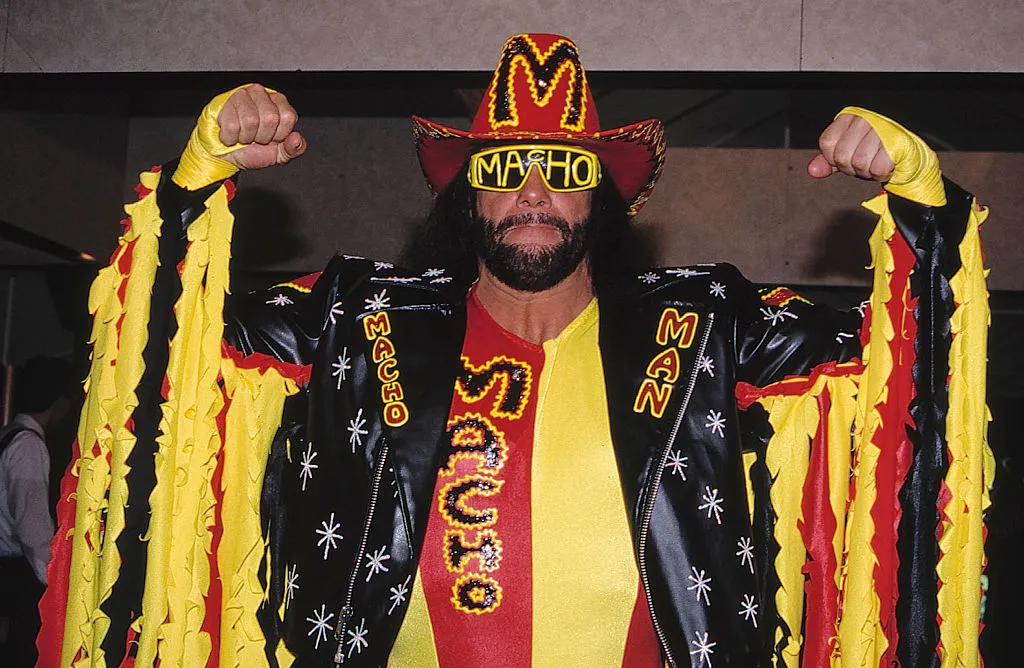
On a recent edition of his “The ARN Show” podcast, WWE Hall of Famer Arn Anderson discussed Randy Savage leaving WWE for WCW, his WrestleMania 3 match with Ricky Steamboat, and more.
You can check out some highlights from the podcast below:
On whether Randy Savage was the total package: “I don’t know what the weaknesses would be, if there were any. You got any? I don’t see any. I mean, the guy was in shape, he took care of his body, he was a businessman. I mean, if you’re talking about a character, he had a full character. You know, though there was no doubting who the Macho Man was, that’s for sure.”
On Savage scripting out his WrestleMania 3 match with Ricky Steamboat: “And the fact that he was able to put something from start to finish along with Steamboat — you know, you had to have the other guy be able to pull that off too. To be able to put that together and pull it off, the way he already had it organized without really playing to the fans, and their reaction? I mean, they must have stuck to the script, I think. It’s amazing.”
On Savage being recognizable: “I don’t think there’s a soul on Earth that saw Randy on TV and went, ‘Who is that?’ I mean, it was just too high profile. He had too many years under that WWF umbrella, WWE. He just — you knew who Randy Savage was. And hey, if you think the Slim Jim commercial didn’t take his profile up another notch? You know, we kind of laugh at it, but of course it did. I mean, those commercials were everywhere. It’s just, if you’re on TV and your face — that’s the thing about wrestling. You don’t have a football helmet on, you don’t have a baseball hat on. You don’t have a hockey helmet on. It’s your face. And that’s what they see, and you zoom in on that face and that’s why professional wrestlers who have been on TV for a while are so visible, and so memorable. You’re zeroing in on their mug.”
On whether Savage was still a needle mover in WCW in 1994: “Oh, yeah. I mean, it was five years later, so what? I mean, people remember. People still remember — I go to these signings and stuff, Paul is like, ‘They saw you yesterday.’ You know, they remember. You know, they can tell you stories, they can tell you matches. They can [say] ‘Thank you for my childhood, and when I was eight years old, I hated your guts because I liked this guy over here.’ I mean, wrestling fans, when they tune in, they remember. It’s part of their childhood/life. And it’s not like they went to Randy Savage, ‘Well, I didn’t, I thought he was too old.’ He walked in in shape, ready to go.”
Randy Savage, also known as the “Macho Man,” is a legendary figure in the world of professional wrestling. His larger-than-life persona, incredible athleticism, and memorable matches have made him one of the most beloved and iconic wrestlers of all time. In a recent episode of “The ARN Show” podcast, WWE Hall of Famer Arn Anderson discussed Savage’s departure from WWE for WCW, his historic WrestleMania 3 match with Ricky Steamboat, and more.
One of the topics Anderson touched upon was whether Savage was the total package. He praised Savage’s physical condition, his dedication to taking care of his body, and his business acumen. Anderson couldn’t find any weaknesses in Savage’s skill set and character, emphasizing that he was the epitome of a complete performer.
The conversation then shifted to Savage’s WrestleMania 3 match against Ricky Steamboat. Anderson marveled at how Savage and Steamboat were able to script and execute such a complex and high-quality match without relying on the crowd’s reaction. He highlighted the importance of both wrestlers being able to pull off such a meticulously planned performance, calling it amazing.
Savage’s recognition and popularity were also discussed during the podcast. Anderson stated that there was not a single person on Earth who saw Savage on TV and didn’t recognize him. With years of exposure under the WWF/WWE umbrella, Savage had become a household name. Anderson pointed out that Savage’s fame was further elevated by his appearances in Slim Jim commercials, which were ubiquitous at the time. The visibility of professional wrestlers, with their faces being their main identifier, made them highly memorable figures in the eyes of fans.
The conversation then turned to Savage’s tenure in WCW in 1994 and whether he still had the ability to draw attention and captivate audiences. Anderson responded with a resounding yes, emphasizing that wrestling fans have long memories and a deep emotional connection to the sport. He recounted his experiences at signings, where fans would express their gratitude for being a part of their childhood and recall specific matches and moments. Anderson debunked the notion that Savage was too old or past his prime, stating that he walked into WCW in great shape and ready to perform.
The podcast episode provides valuable insights into the career and impact of Randy Savage. It highlights his exceptional skills, dedication to his craft, and enduring popularity among wrestling fans. Savage’s legacy as one of the greatest wrestlers of all time is further solidified through Anderson’s anecdotes and observations.
